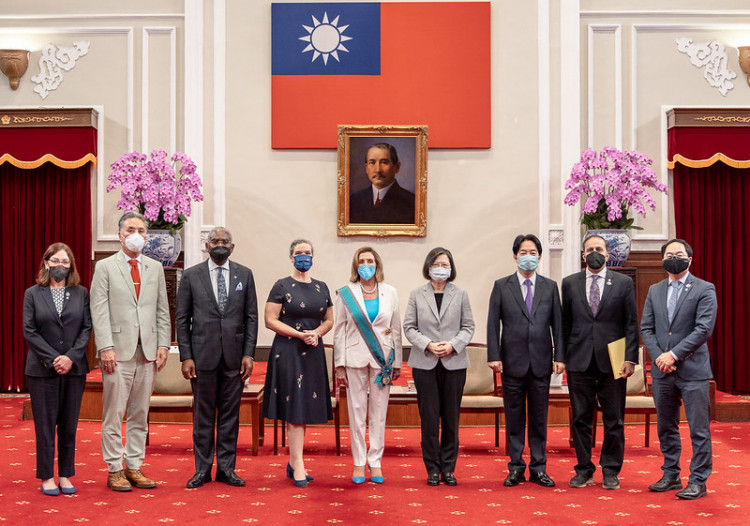In a move that defied Beijing, which has reacted angrily to past travels, a delegation of US lawmakers landed in Taiwan on Wednesday (Sep. 7) on an unannounced trip. They are the latest top officials from the U.S. to visit the island.
Following Nancy Pelosi, the speaker of the U.S. House of Representatives visited Taipei, China conducted war simulations last month close to Taiwan. It has since continued its military operations around the island.
The eight members, led by Stephanie Murphy, a Democrat from Florida who serves on the House Armed Services Committee, will remain in Taiwan until Friday as part of a larger trip to the Indo-Pacific area, according to the legally recognized U.S. embassy in Taiwan.
The delegation will meet with senior Taiwan leaders to discuss U.S.-Taiwan relations, regional security, trade and investment, global supply chains, and other significant issues of mutual interest," it added.
China rejects the adamant protests of Taiwan's democratically-run government and considers the island its own.
Following Pelosi's visit, the governor of the U.S. state of Arizona and other US lawmakers subsequently arrived.
Beijing's aggressive behavior after Pelosi's visit, according to Taiwan's top diplomat in Washington, Hsiao Bi-khim, has sparked interest from parliaments all over the world in sending delegations to the island.
Separately, Taiwan's minister for mainland affairs Chiu Tai-san stated at a Washington seminar on Wednesday that Beijing could not use regional stability and cross-Strait tranquility as bargaining chips.
Chiu stated in a video presentation to the Center for a New American Security think tank that "we count on all countries to unite more strongly in urging China to show rational restraint and adjust its practices." We must also guard against the improper and illegal use of coercion becoming commonplace as a result of our negligence or complacency.
Despite not having any official diplomatic relations with Taiwan, the US is required by law to give the island the tools to defend itself.
The People's Republic of China has no right to claim Taiwan, according to the island's government, which asserts that only its 23 million citizens have the power to determine their future.
A U.S. senator, another congressional delegation, as well as government representatives from Japan and Palau, visited Taiwan after Pelosi's visit. Additionally, the governors of Arizona and Indiana paid trips with an emphasis on semiconductors, a sector that Taiwanese firms dominate.
The legislators from the U.S. have described their trips as a gesture of support for the island.






